Sheryn Dean’s top 10 strategies for the ultimate lifestyle block
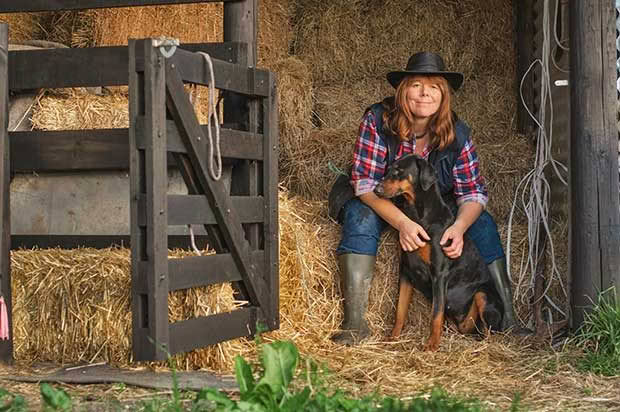
It’s not luck, it’s hard work and the right skill set that makes holistic living on the land the ultimate lifestyle.
Words: Sheryn Dean
Who: Sheryn Dean
What: self-sufficiency teacher, tree cropper, organic farmer
Where: Tirau, 50km south-east of Hamilton
Land: 3.5ha (8.6 acres)
Website
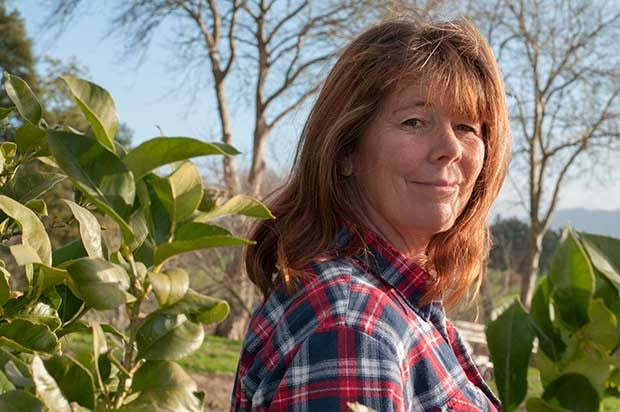
Sheryn Dean produces more organic food than she can eat her block, only lacking seafood and wine. During her stint as the editor for the NZ Tree Crops Association journal she collected and catalogued over 200 food-producing plants. Some she hopes she will never be hungry enough to want to eat but she enjoys the challenge of growing everything from almonds to wasabi. Always an animal person, she has an integrated system that includes everything except goats (they eat her trees), horses (unproductive), and alpacas (too many neck chops). She now hosts courses teaching a wide variety of the skills needed to holistically live from the land through her Learn about Living Sustainably courses.
I am so lucky. So very, very lucky.
I know this as I have friends who visit and tell me so. They sit in the shade of the apple tree, sipping wine and nibbling on a fresh juicy nectarine, cat purring, sun shining, cows chewing, and sigh. “You’re so lucky.”
Meanwhile, I am wondering how long it is before they will leave. Should I milk the cow now or wait until they’ve gone? I look sideways at the weeds and reach a hand down to pull those within arm’s reach. Oh shite, I forgot to turn the cheese this morning – note to self to do that when we get back to the house. I am lucky living on my own self-sustainable permaculture, organic, holistic block in Tirau, one of the most fertile farming areas in the country, but it is not luck that got me here, or that keeps it all ticking over. It is determination, research, organisation, effort, and sweat. Good old-fashioned hard work.
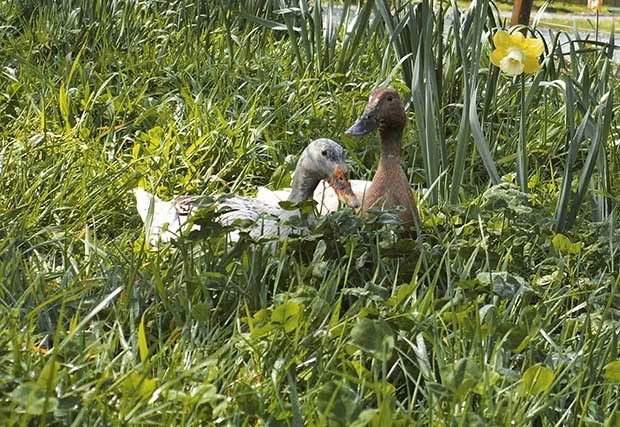
THE HARDER I WORK, THE LUCKIER I GET
It was hard work to save up for the land originally, and it takes work to maintain a large vegetable garden and orchard, milk a house cow, feed all the animals, and pay the mortgage. It is work to make soap and cheese and bread and pasta and preserve all your own food and plan your beef steaks two years in advance. My days are a mix of routine chores, long-term planning, and the never-ending effort of keeping on top of the million tasks I need and want to be done. I start early and finish late. Time efficiency is everything.
Relaxation is hard. Thirty minutes into a good book and the thought of a job that needs doing enters your brain and refuses to leave. You never have everything up-to-date, but it is the most amazing, challenging, rewarding, healthy, and interesting way to live and I wouldn’t swap it for any other. Not even with a cashback.
WHY THIS IS THE PERFECT WORD TO DESCRIBE MY WORLD
When I describe my life to others I like to use, among other words, holistic. It is a slightly hippy-sounding word but it doesn’t have the connotations that many have already prescribed to organic, permaculture or sustainable, but it includes all of them.
It also includes me and my family, our wants and needs and available time and effort. It includes contributing to my local community, recycling local waste, and takes into account our local climate and position. It includes running a business and the realities of rates and mortgages. It includes leaving my patch of paradise better for future generations and doing my part to mitigate climate change. It includes having a healthy, happy and balanced lifestyle. It includes growing nutrient-dense food and food forests and one square metre gardens and composting and worm farming and compost teas and just about every trendy word regarding living off the land. Holistic is a word that acknowledges that every one of these can come together to make a lifestyle that suits our individual requirements.
MULTI-TASKING
All of that takes a multitude of skills and a wide range of knowledge, but the expertise required for specific tasks can be learnt. I teach many myself (course details), but as essential as these skills are, they aren’t actually the most important ones needed for living off the land. The important skills are generic to success in any walk of life and on your own block, where you directly, sometimes immediately, see the consequences of your actions, you will quickly realise how essential they really are.
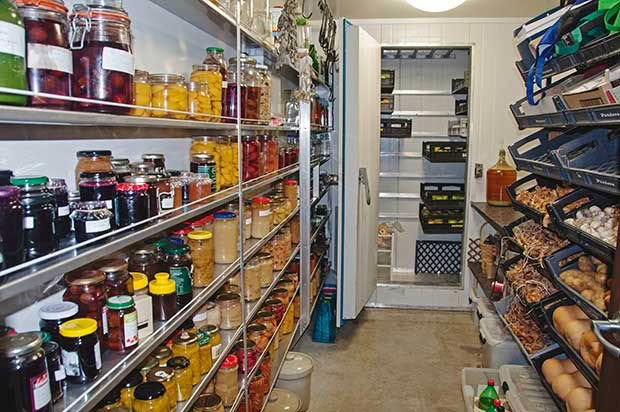
Sheryn’s top 10 techniques for the ultimate lifestyle block
1. HAVE A 10-20 YEAR VISION
If that is where you are going to put the hay shed one day, you want the track you are putting in now to run towards it. If that is where your compost bins will go one day, you don’t want a tree in the middle of it. Even if some things are on the only-if-we-win-Lotto list, knowing where you want them means you don’t have to undo hard work to put them there.
2. PLAN AHEAD
To get ham for Christmas, you need a pig ready for the butcher in November. I prefer my Black Devon baconers grown to eight months old so the boar goes to the sow 12 months before the kill date.
When I want to plant a number of seeds I have collected, I amass a pile of shavings and green waste the year before which then has time to compost down and become my potting mix. Long-term planning can save a lot of time, effort, and money.
3. A STITCH IN TIME SAVES NINE
Don’t procrastinate. Fixing the fence today means the sheep don’t get into your trees and destroy them. Planting the garlic when the sun is out maybe your last chance before the winter rains set in. Crutching the sheep today can prevent flystrike tomorrow. The best time to plant that tree was yesterday. Do it now.
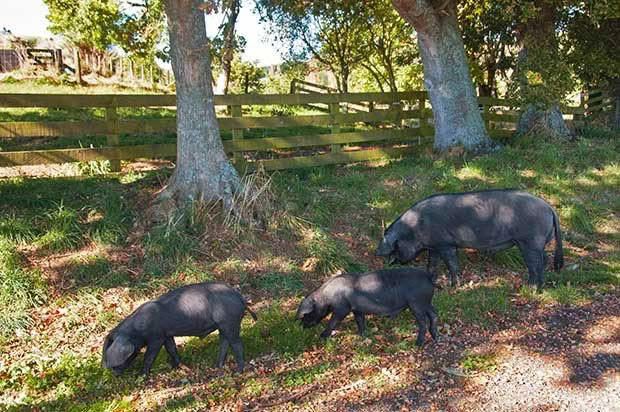
4. PRIORITISE
I plan my day in my head before I get up but I rarely achieve everything I want to be done. My first task and top priority is always my animals: feed, move, milk, and sort for the day, then at least if my day goes askew they are ok. After that, it is what is most important, in order.
5. ASK AND DISCUSS
It is always some passing comment that gives me an unexpected insight and some of my best information has come from the most unlikely sources. I love swapping ideas and experiences with other orchardists, farmers, gardeners, and small block owners and always gain something. Mind you, sometimes you get a long-winded answer that you know is total bullsh*t but part of the trick is to filter: take what you can use, discard the rest.
6. ADMIT YOUR MISTAKES
Admit it, cut your losses, and learn from it. You may have thought that a plum tree could fit beside the driveway but it is now in the way of traffic and making a mess. Plant another somewhere else today and cut it out as soon as it has finished fruiting this summer.
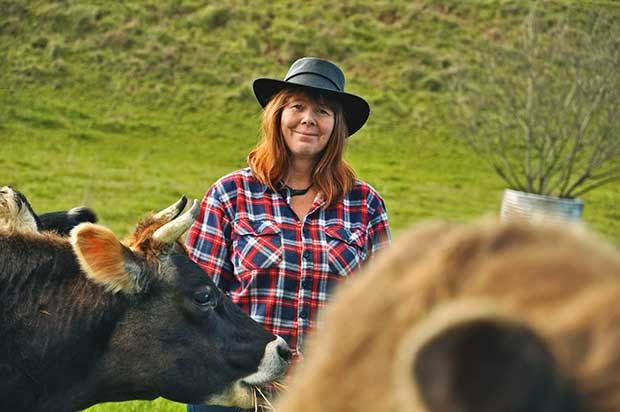
7. NOTHING LASTS FOREVER
Yes, your fence looks fantastic and is equivalent to the Great Wall of China – until your parents decide to build their retirement house in that paddock. I think I’ve spent as much of my time pulling down tree surrounds and fences as I have putting them up. Making things secure, but reversible can save you a lot of effort.
8. NETWORK AND SHARE
Share skills and resources with neighbours. Our closest neighbour has sheep, a sheep trailer, and sheep yards and kindly shears my two pets when doing theirs. The other neighbour makes silage and donates his spoilt bales for mulch around my trees. When he is away, I move his cattle. I have excess eggs, another friend has excess nuts. We swap. What goes around, comes around.
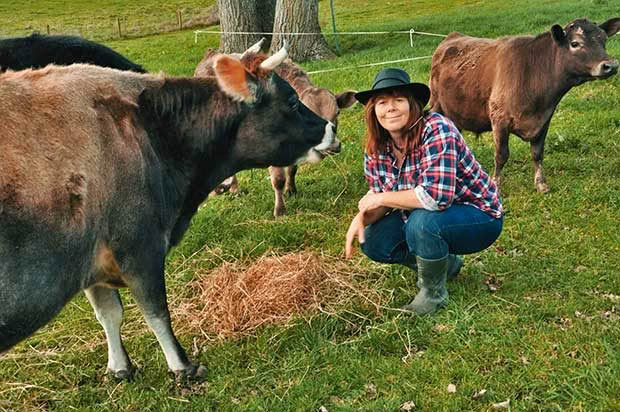
9. DIVIDE AND CONQUER
Some of my friends have inside/out division so he milks the cow, she makes the cheese and butter. With another couple, he looks after the orchard, she does the vegetable gardens. It is hard to do it all yourself and while it is great to work together, having one person who is the ‘boss’ of each area makes lines of responsibility clear.
10. TAKE TIME OUT
If you find it hard to relax when there are chores to do, make time to enjoy your lifestyle. Leaning on the fence watching the cows is not being lazy – it’s farming. It’s observing your animals, feeling the sun on your neck, analysing the grass, and chilling out for 10 minutes. Do it at least once a day.
Love this story? Subscribe now!
 This article first appeared in NZ Lifestyle Block Magazine.
This article first appeared in NZ Lifestyle Block Magazine.
